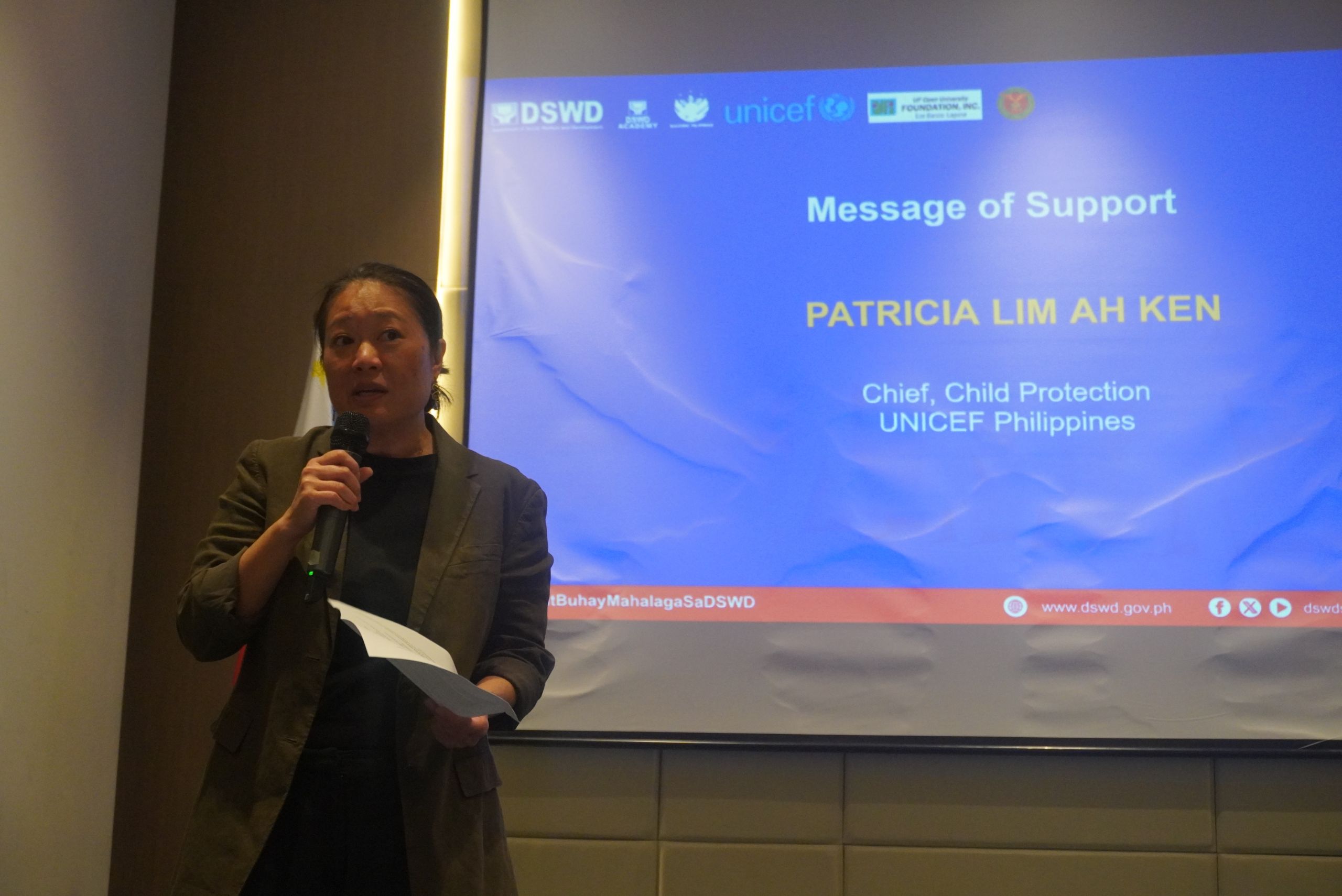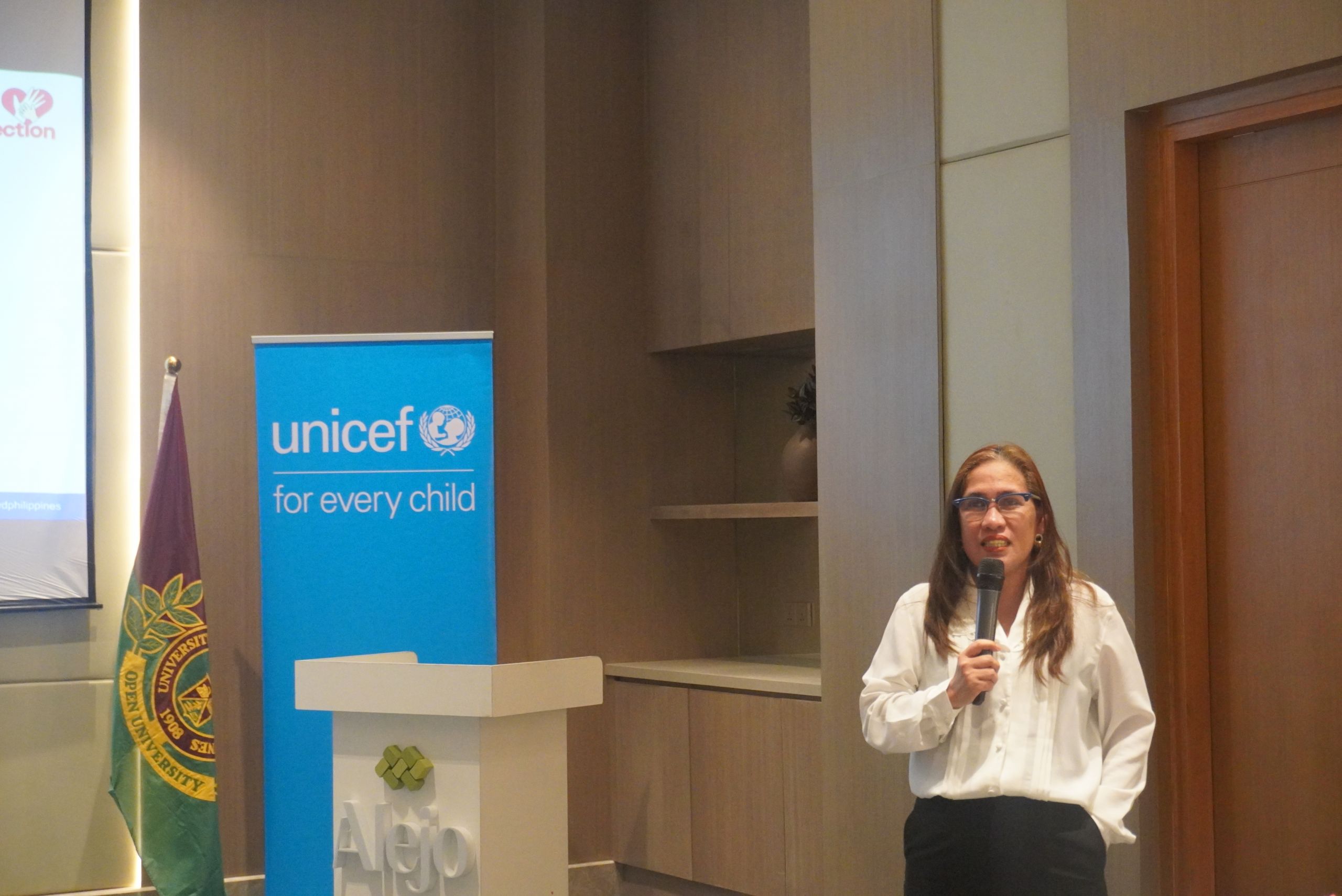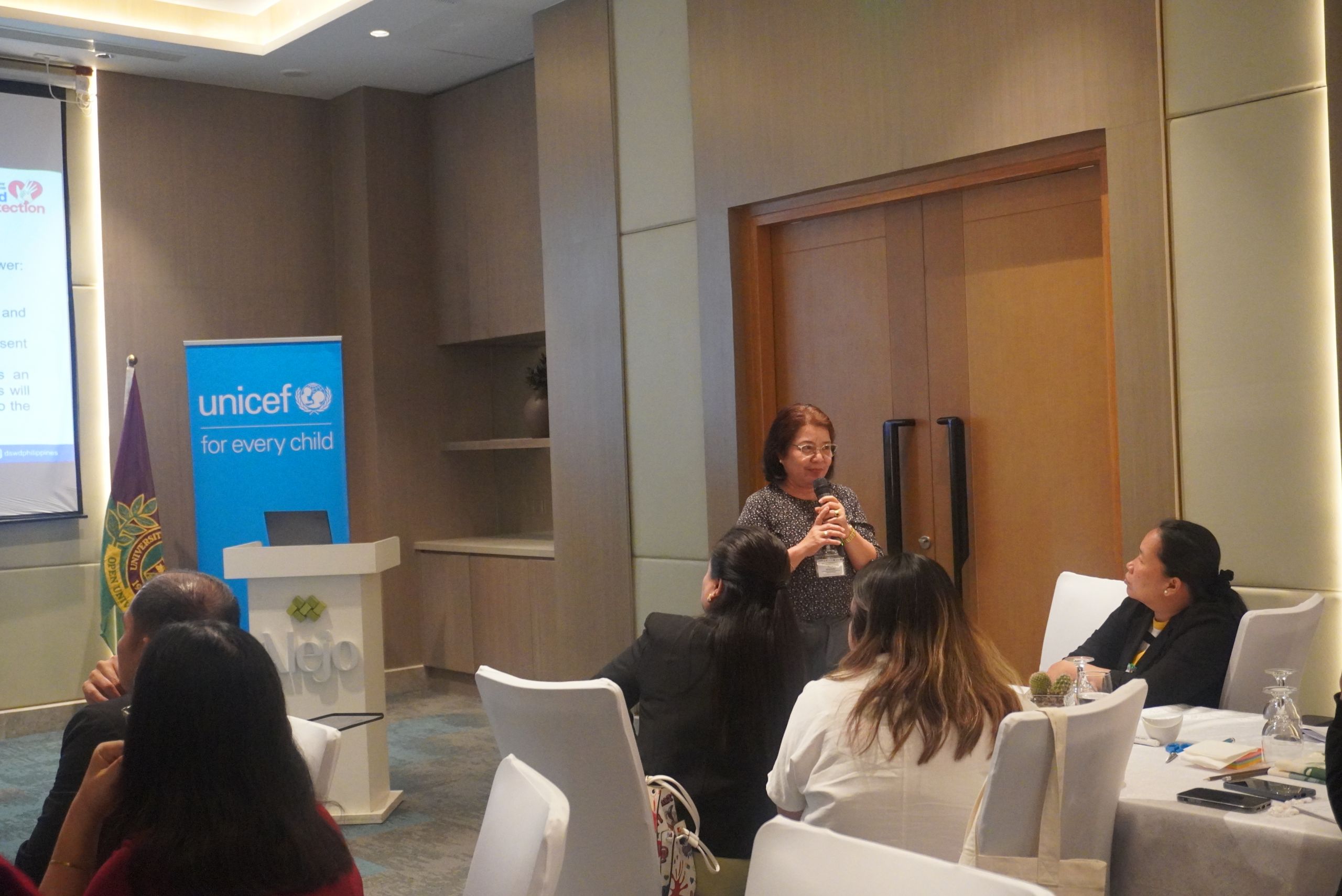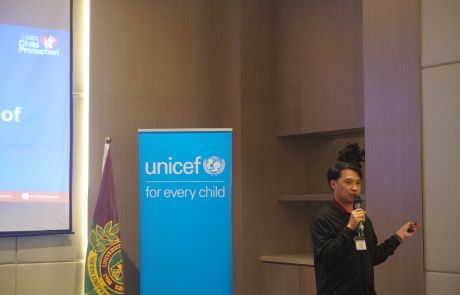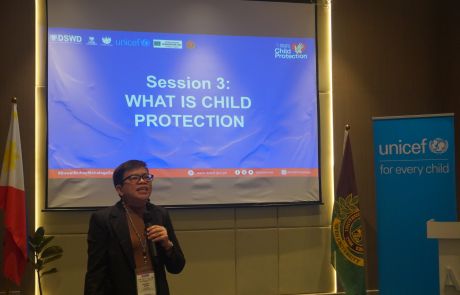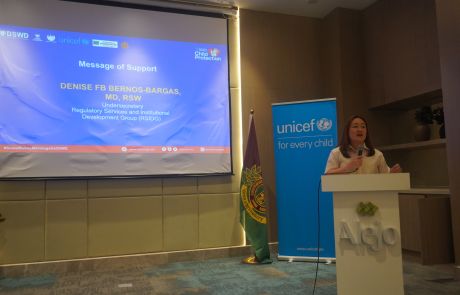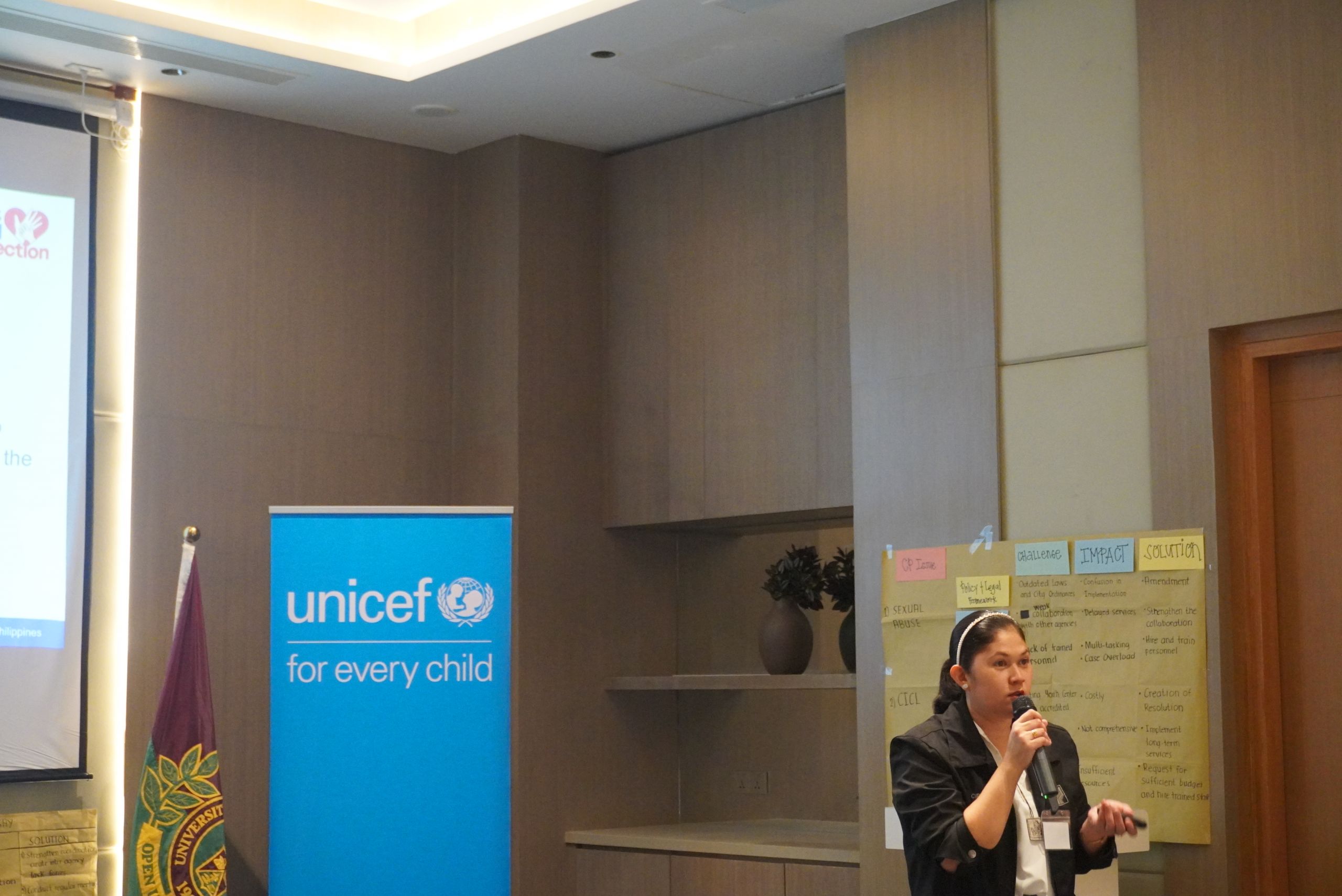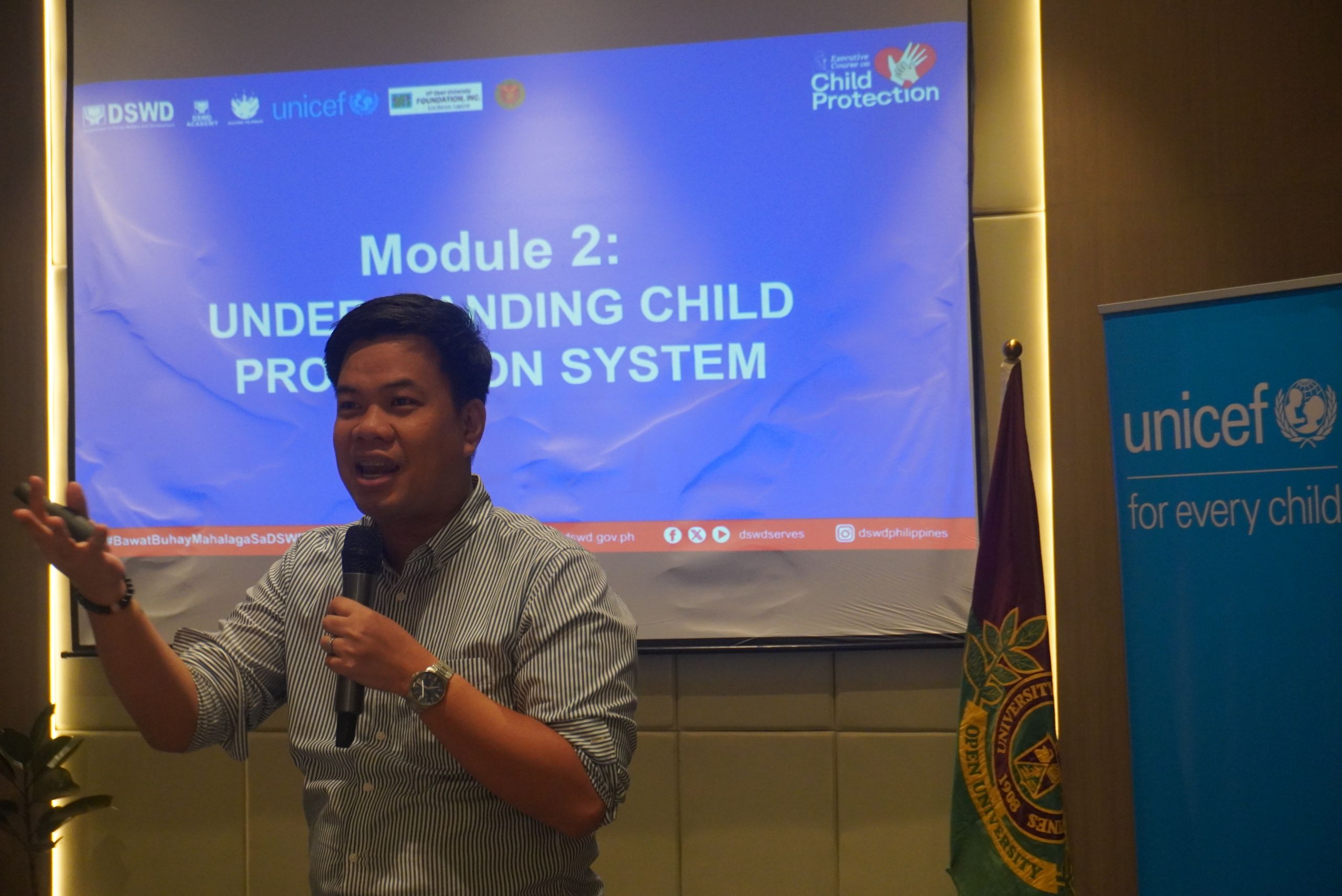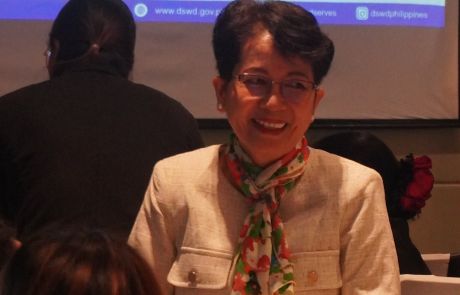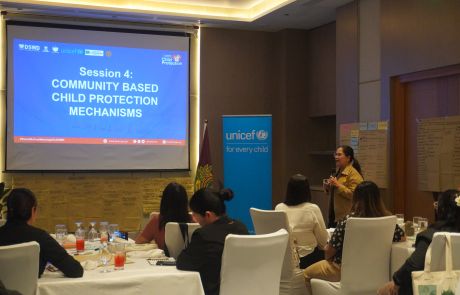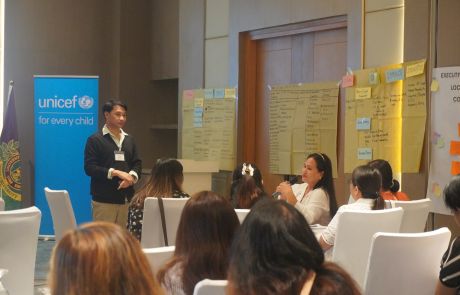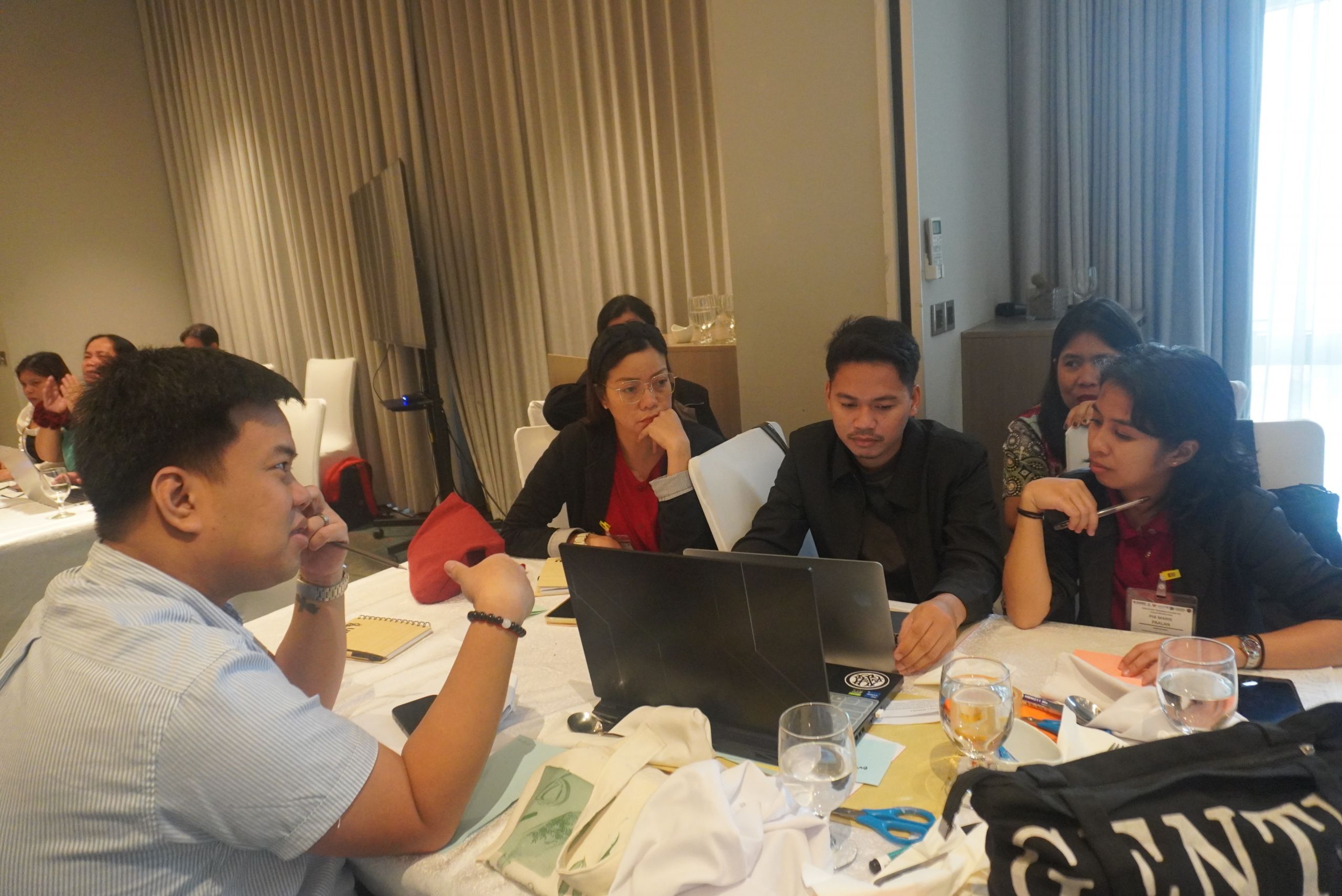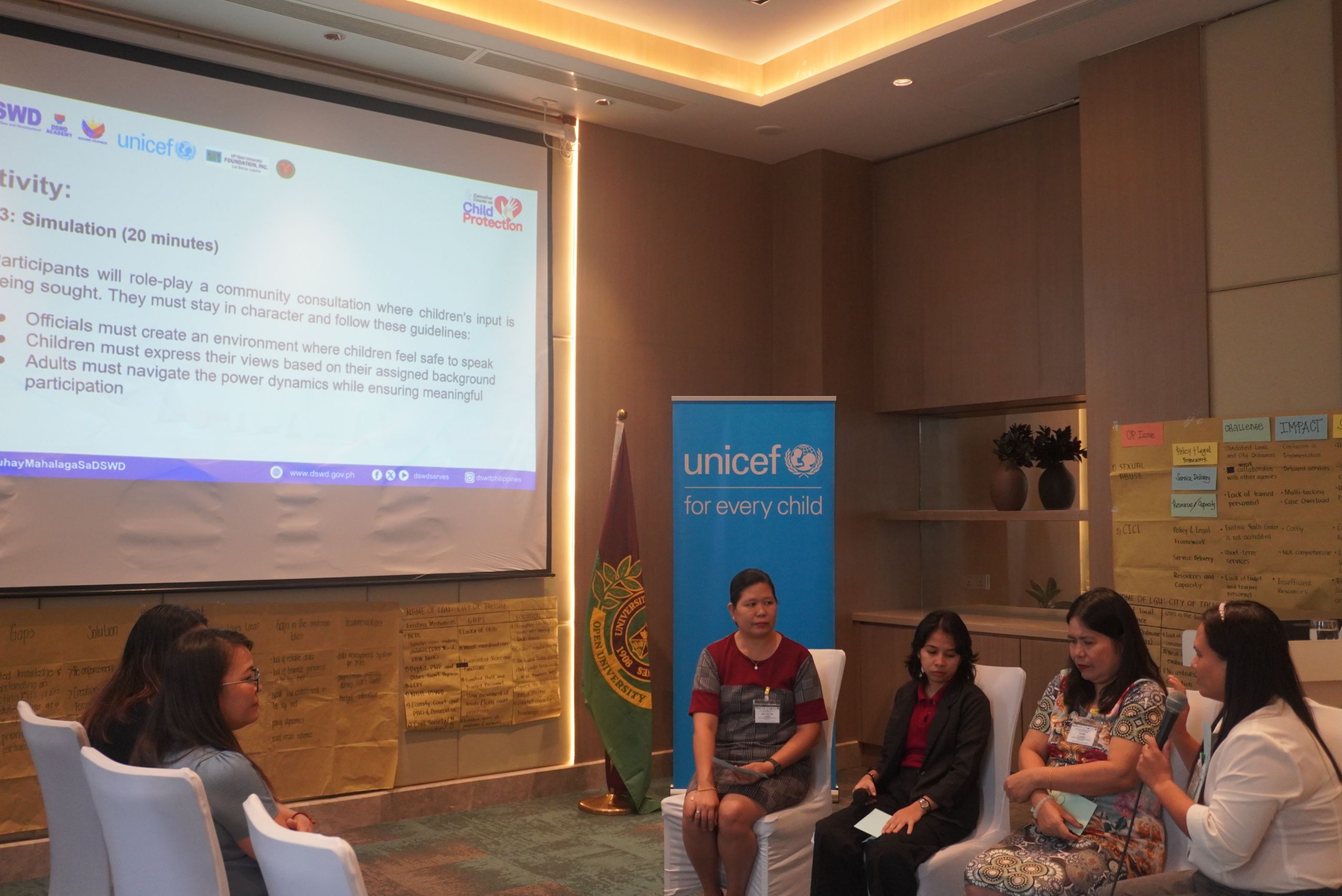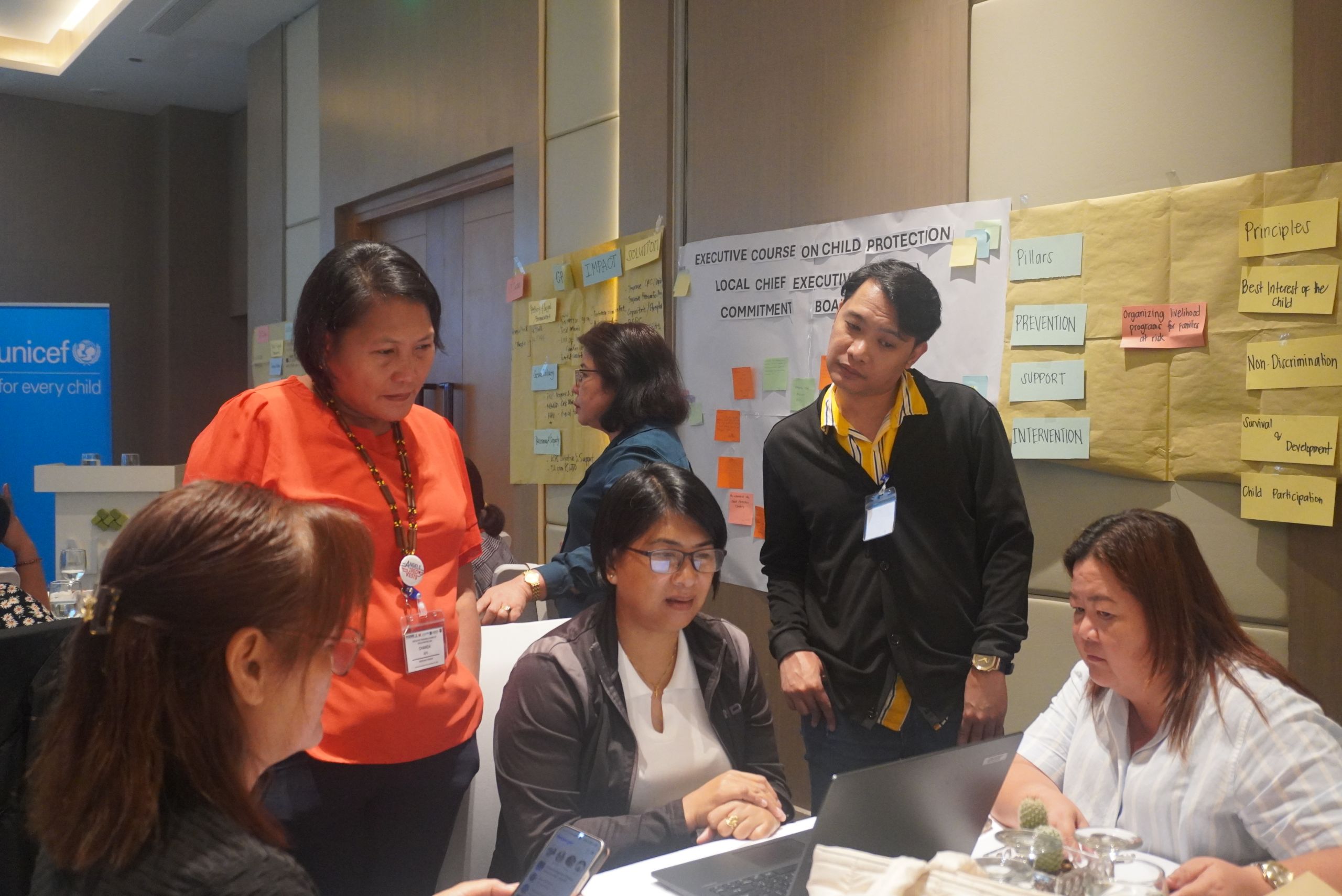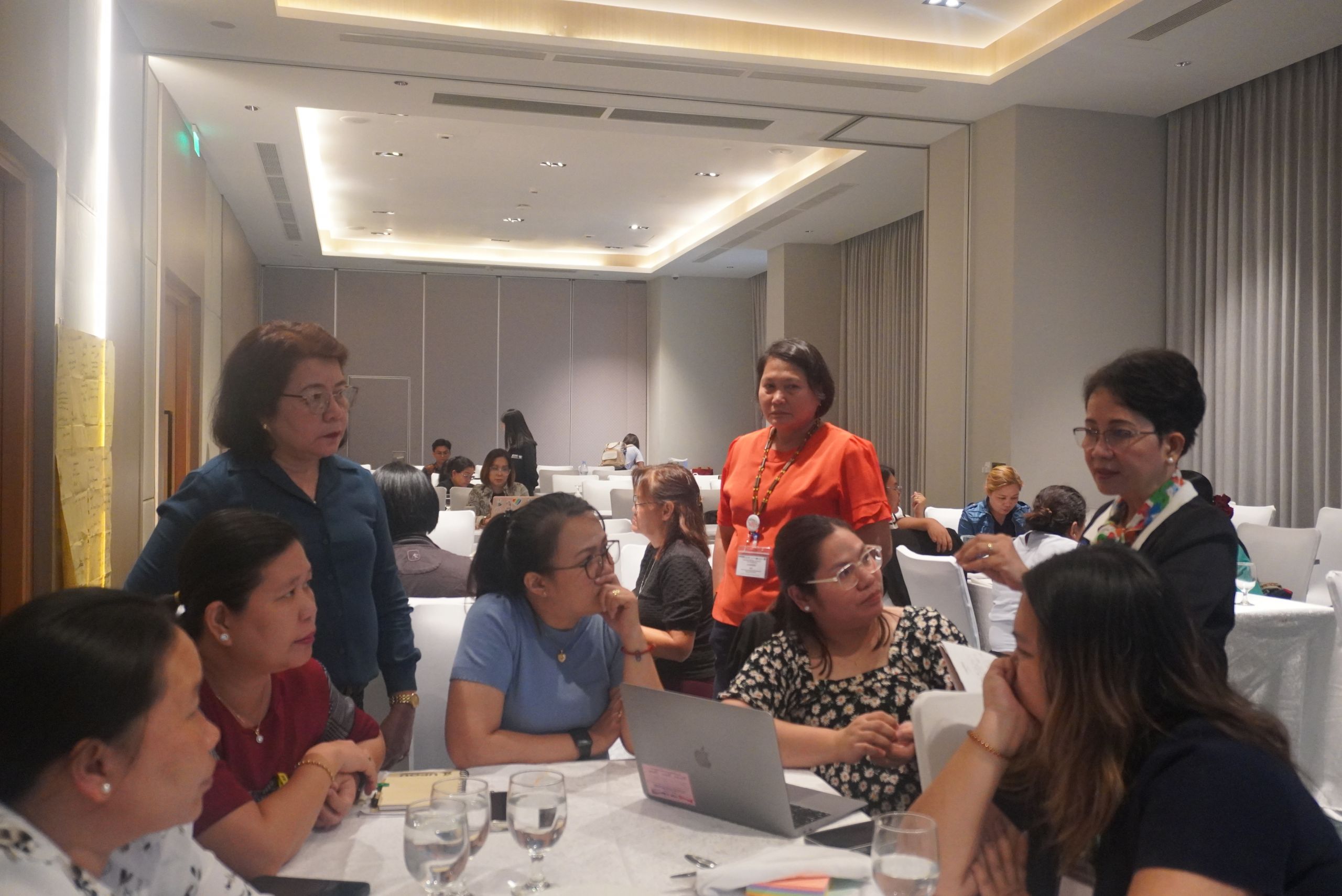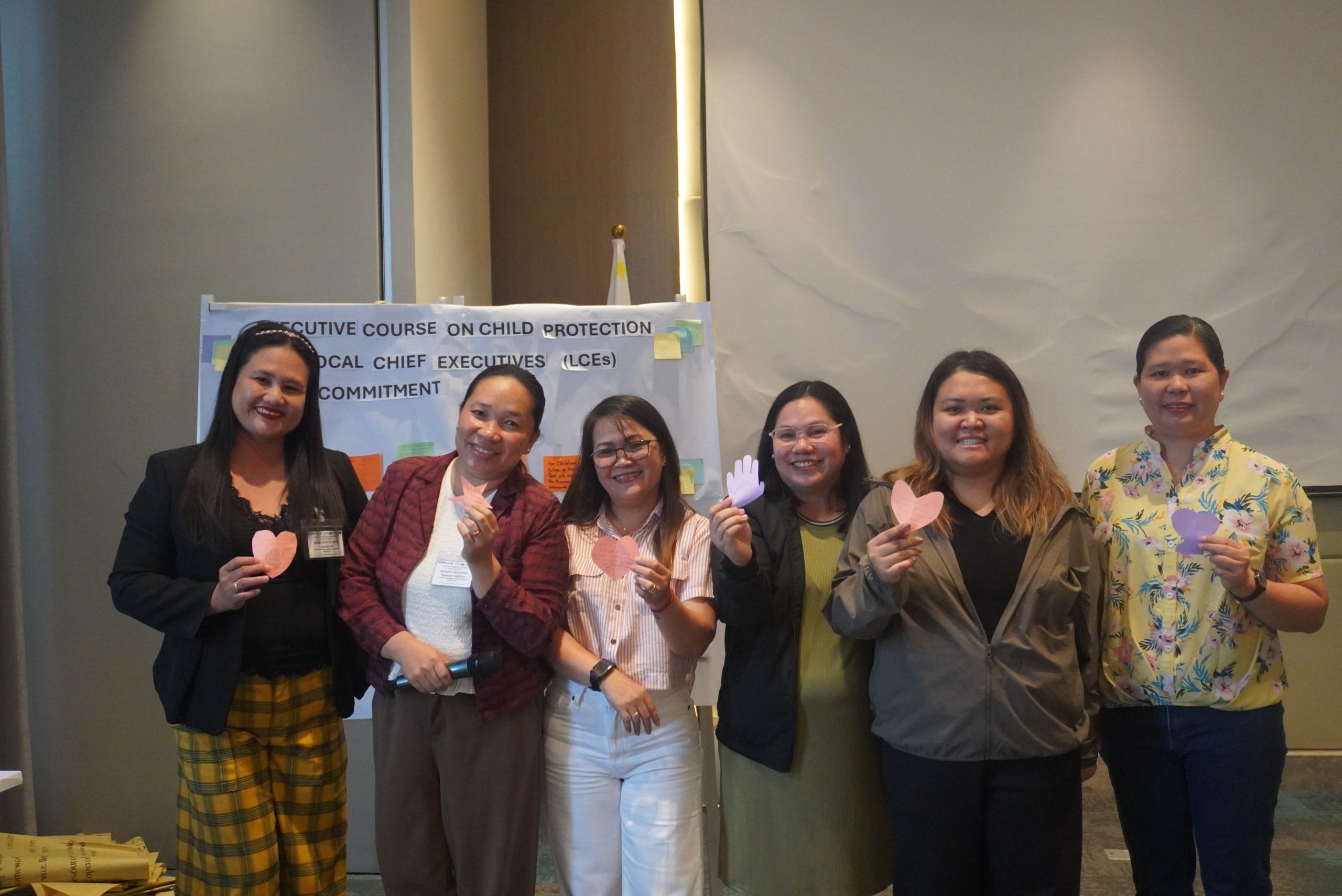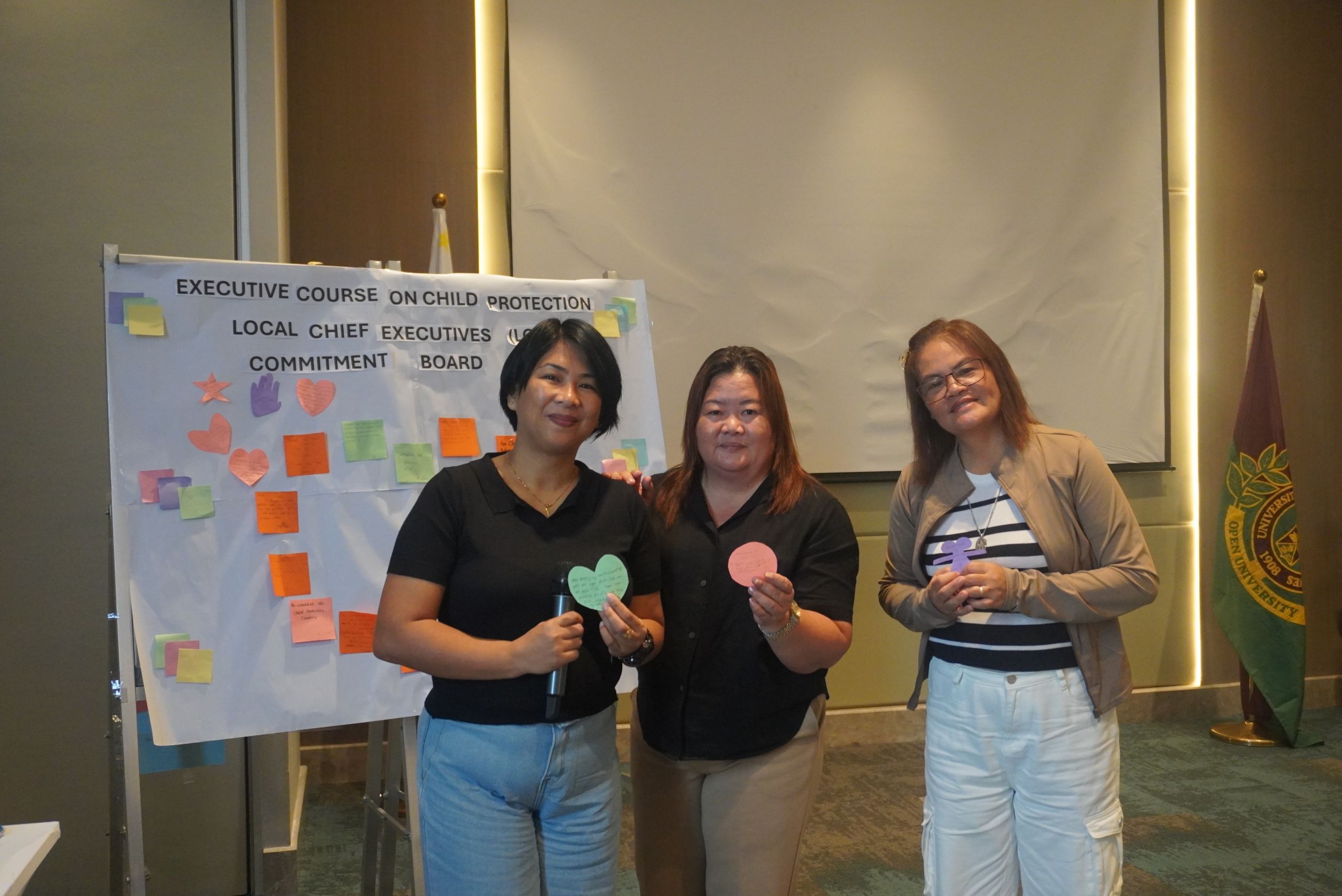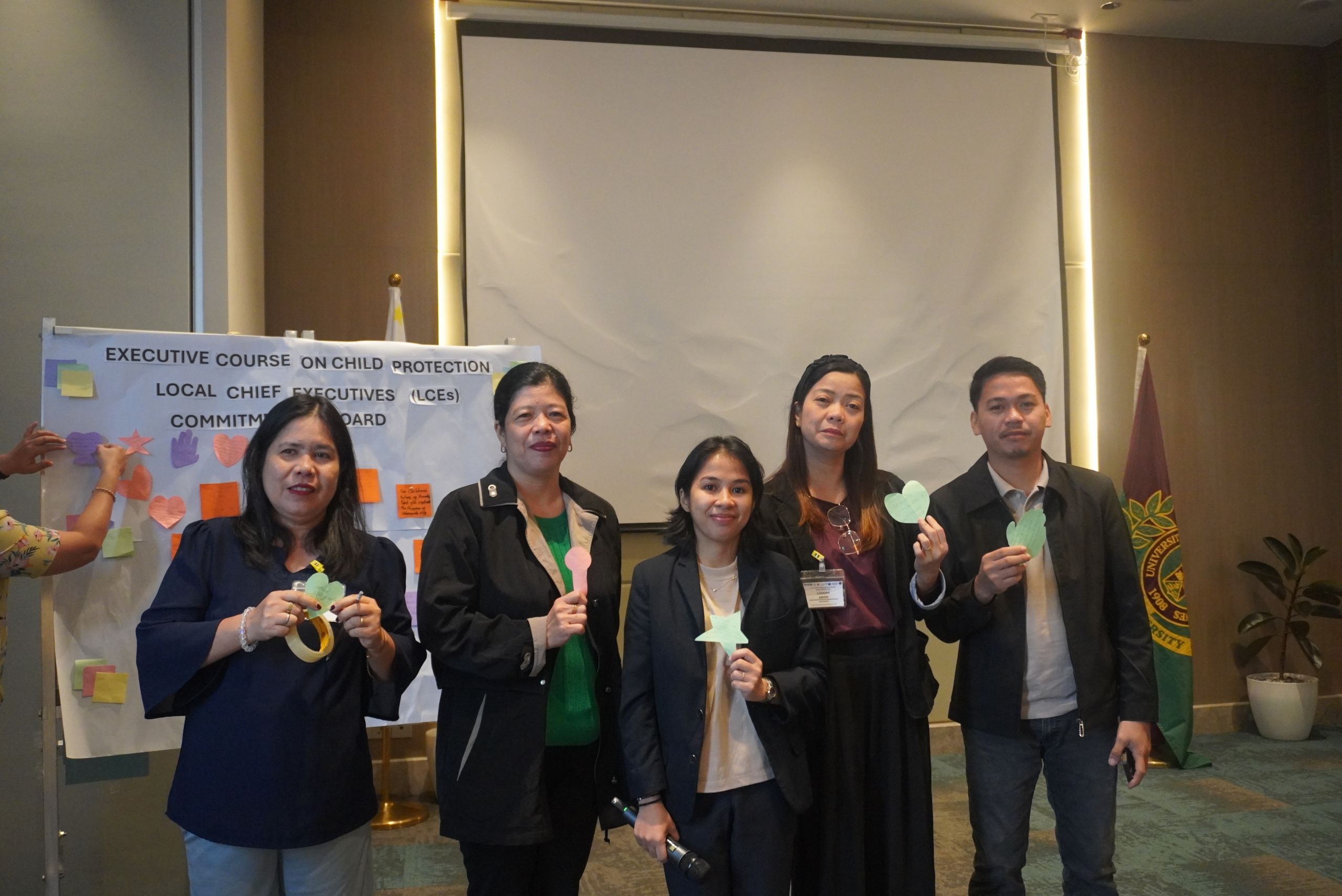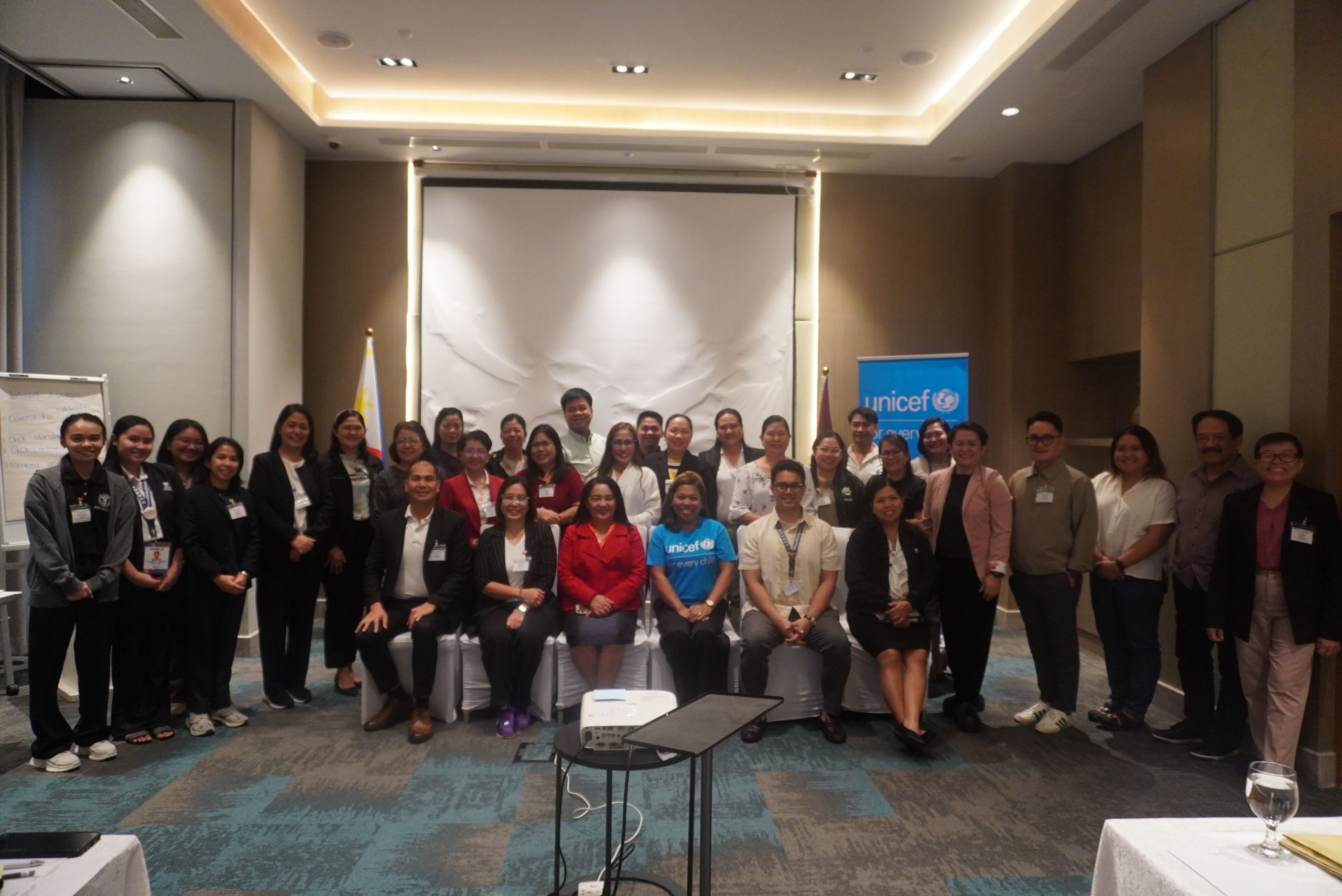
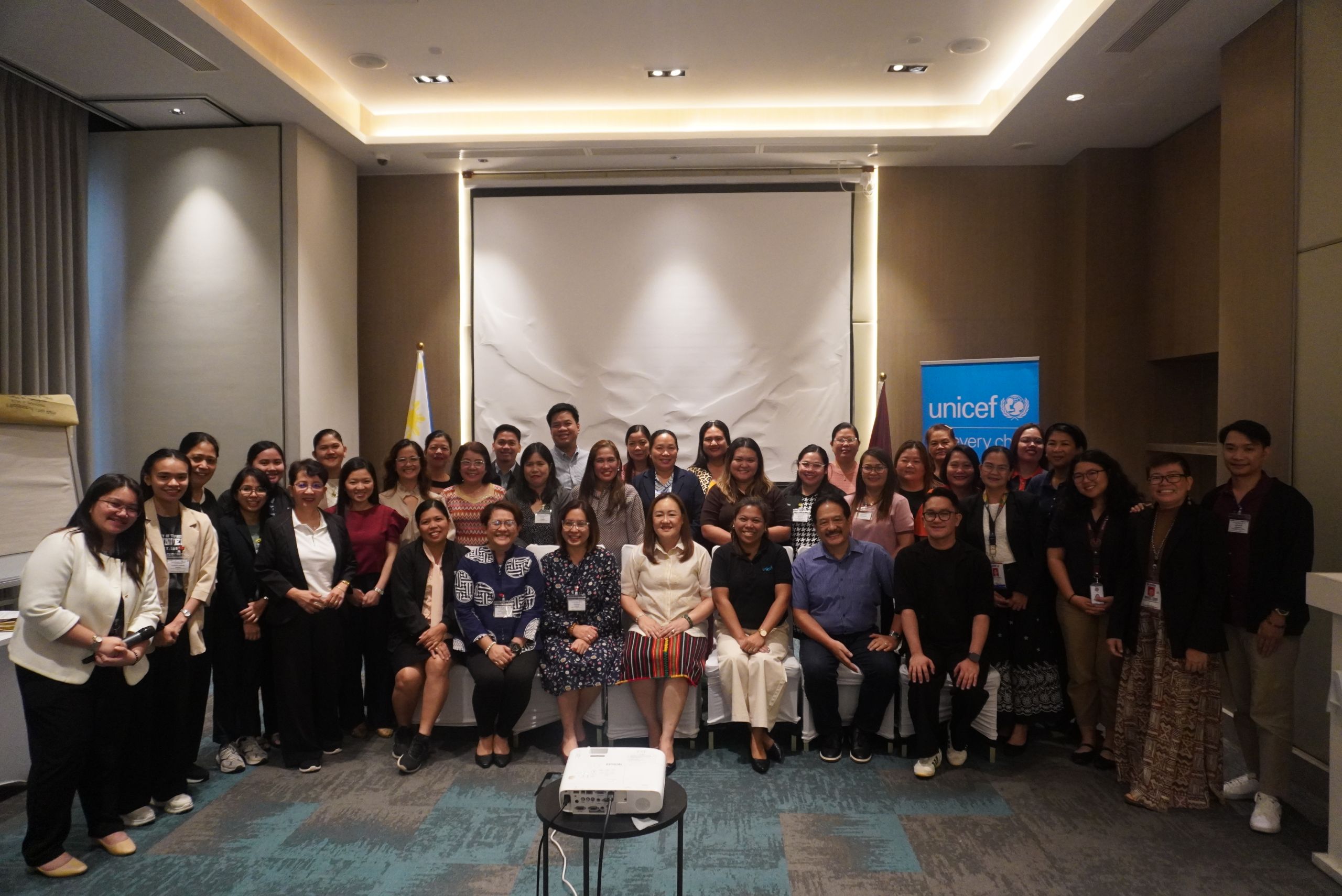
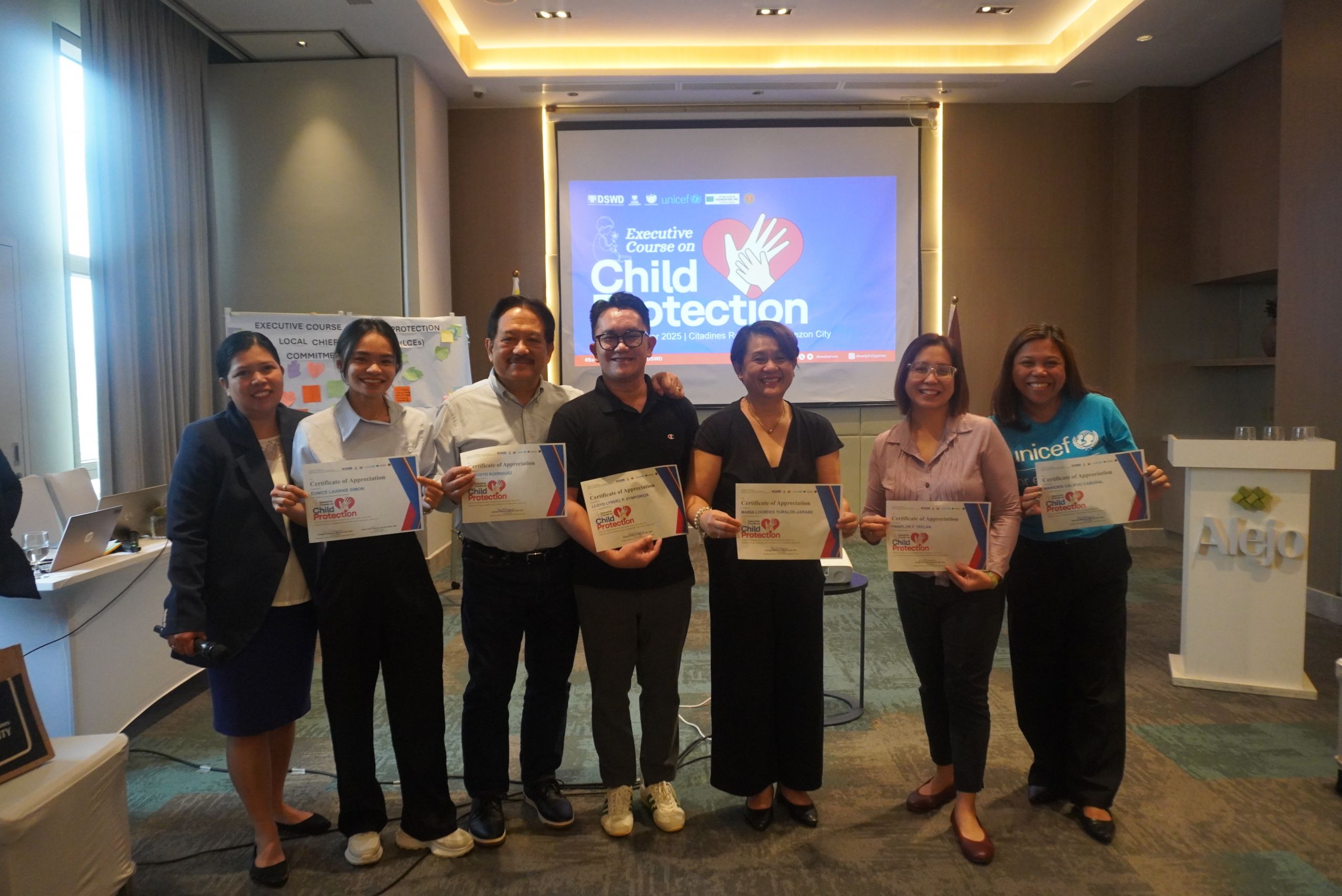
The University of the Philippines Open University Foundation, Inc. (UPOUFI), through the UPOU Faculty of Management and Development Studies (FMDS), in partnership with the Department of Social Welfare and Development (DSWD) Academy, the DSWD Core Group of Specialists from various regional offices, and the United Nations Children’s Fund (UNICEF) Philippines, successfully conducted a five-day training on the Executive Course on Child Protection on 8–12 September 2025 at Citadines Roces, Quezon City.
The training convened key representatives from the local government units (LGUs) of Talisay, Cebu; Brooke’s Point, Palawan; and Mauban, Quezon Province. The training aims to further strengthen the competencies of LGUs in the development and institutionalization of functional child protection systems within their respective local contexts.
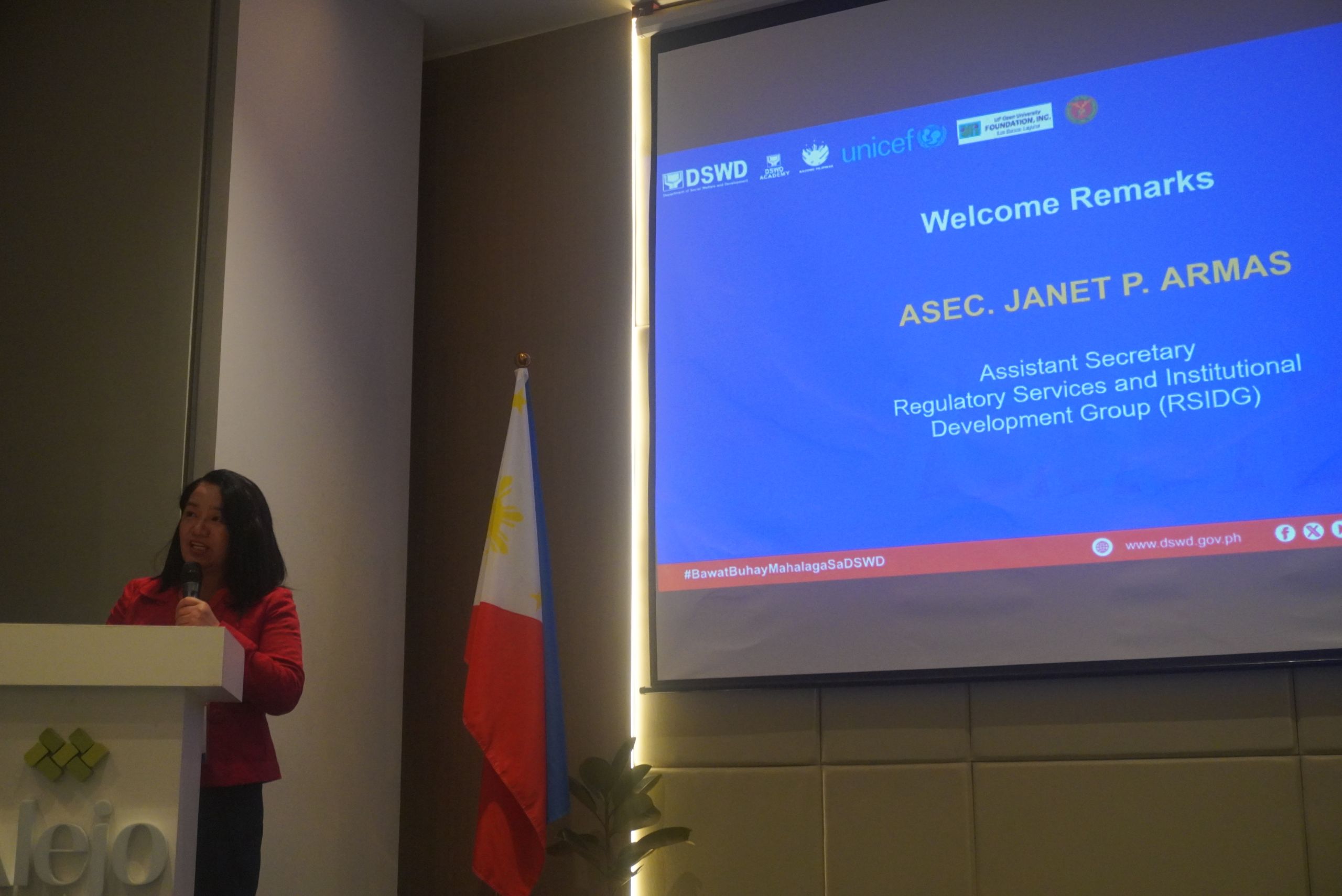
DSWD Assistant Secretary Janet P. Armas opened the session by welcoming participants and emphasizing a practical, step-by-step approach in engaging LGUs on child protection. She encouraged starting with small actions, such as resolutions or ordinances, before moving to larger investments like infrastructure. She also noted that some LGUs already have partial systems in place that only need executive orders to complete, and reminded participants not to overwhelm mayors with costly demands too early.
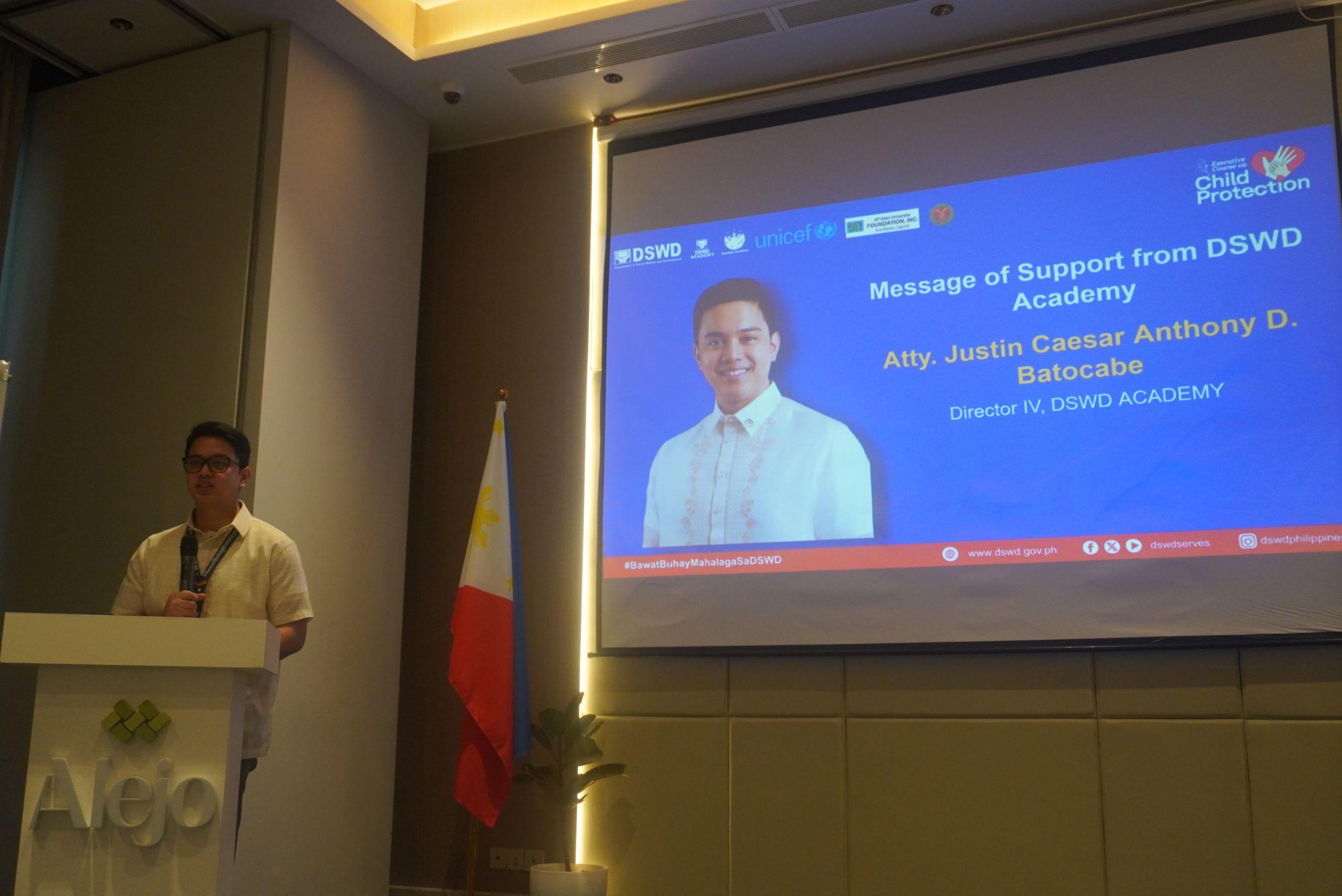
Atty. Justin Caesar Anthony D. Batocabe, Director IV, DSWD Academy, also warmly welcomed the participants and briefly explained the purpose, vision, and the ongoing renovation of DSWD Academy buildings.
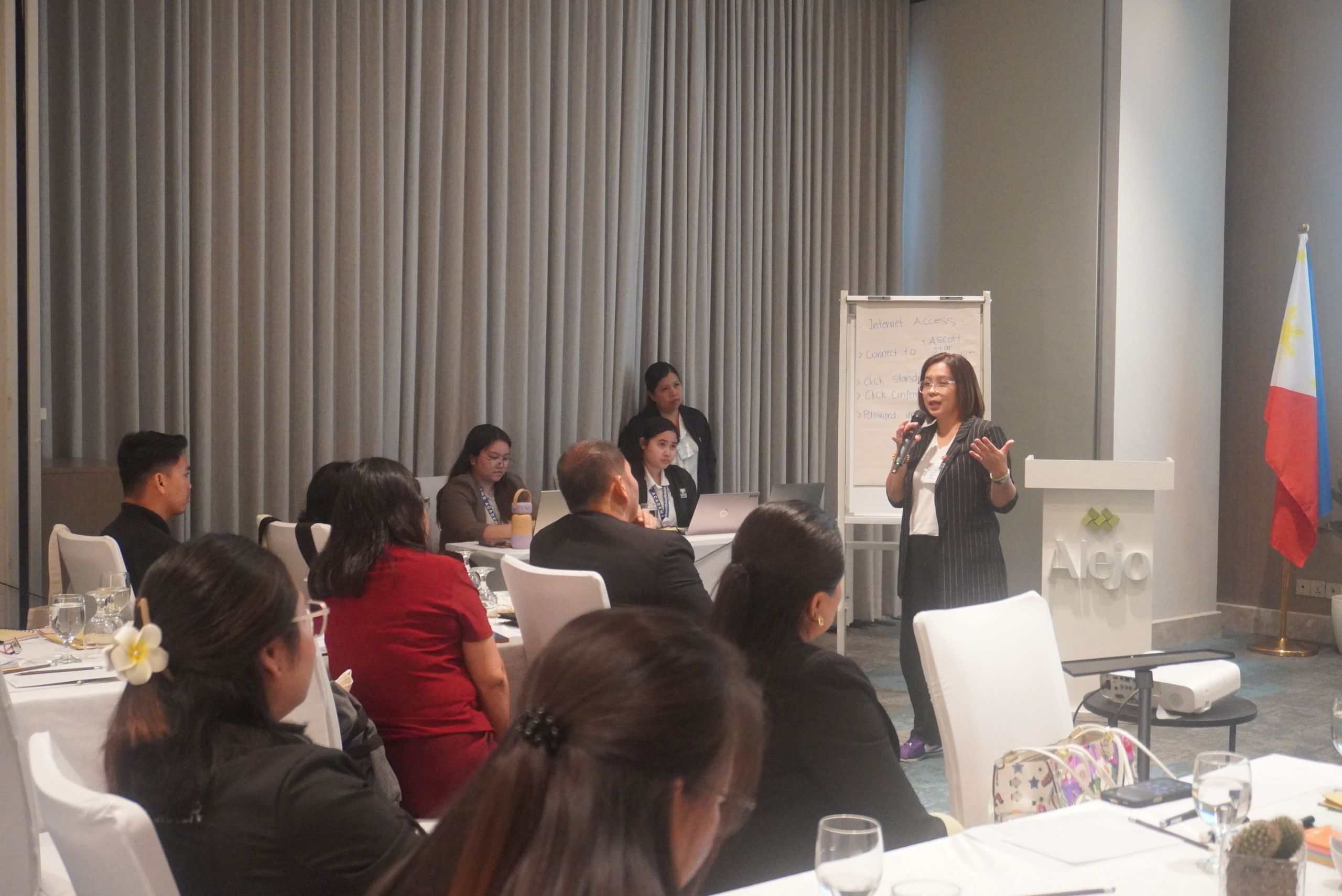
Dr. Finaflor Taylan, Project Leader, discussed the overview of the Executive Course on Child Protection, a comprehensive and contextualized program for professionals, policymakers, and frontline workers. Grounded in national and international frameworks, the course builds knowledge, skills, and values to uphold children’s rights by establishing or strengthening local child protection systems. It emphasizes a multidisciplinary, child-centered, and context-specific approach, recognizing that child protection goes beyond preventing harm to empowering children to thrive.
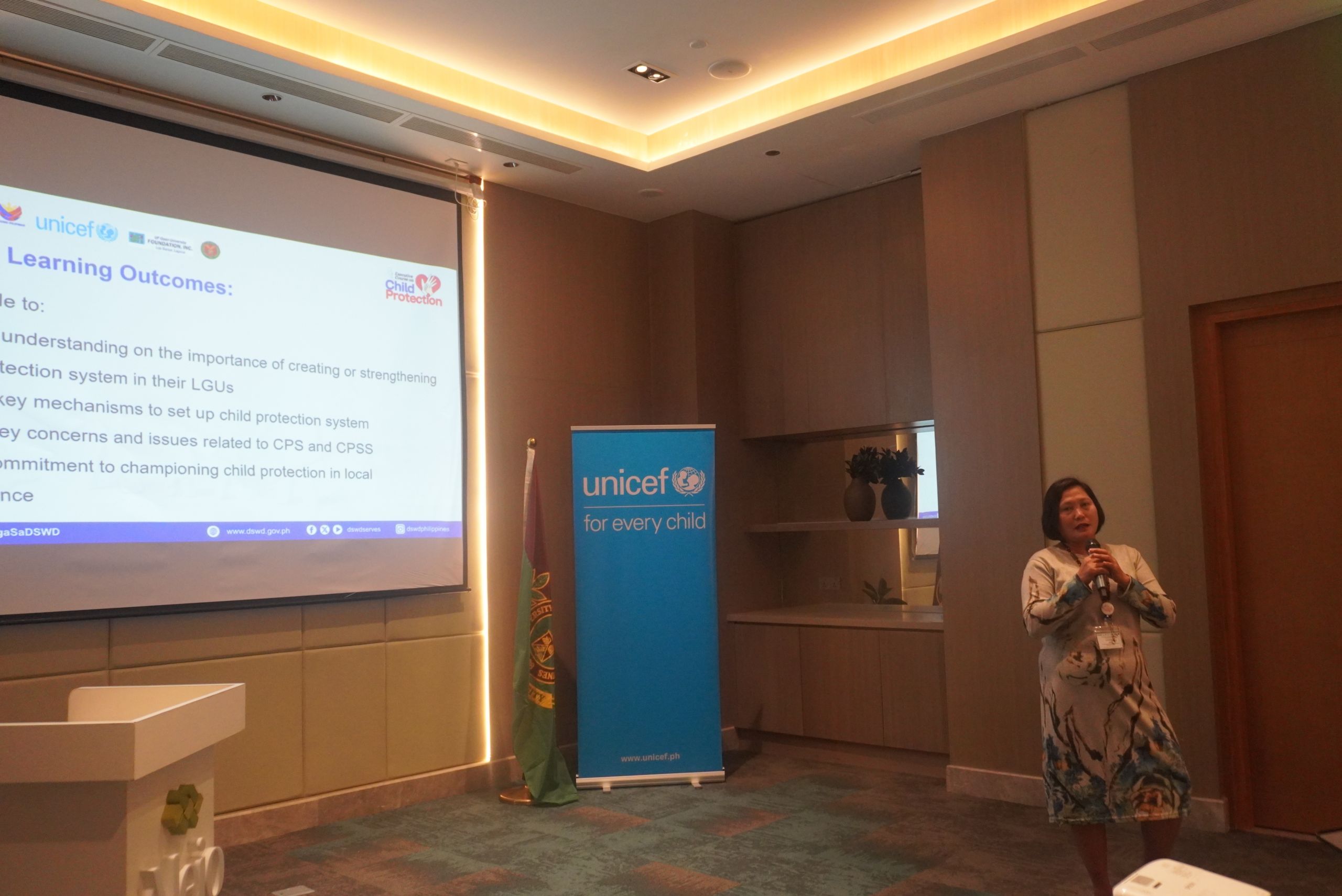
The first day of training opened with a lecture on the Local Chief Executive (LCE) Module delivered by Ms. Chanda T. Api, Social Welfare Officer V of DSWD Field Office II. The session introduced a transformative journey toward designing and sustaining an integrated Child Protection System (CPS) within LGUs, drawing on real-world cases to demonstrate effective policies, structures, and impacts. The LCE Module also served as an introductory session for members of the Multi-Disciplinary Team (MDT).
In the afternoon, Ms. Patricia Lim Ah Ken, Chief of Child Protection at UNICEF Philippines, delivered a message of support. She emphasized that child protection must be viewed as a system rather than a collection of separate programs. She urged local leaders to prioritize children in policies, budgets, and services, while also learning from the good practices of other LGUs. She reminded participants that existing national programs and tools can be further strengthened, meaning they do not need to start from scratch. She concluded by highlighting that every ordinance, budget, or program sends a strong message that every child matters, and that leaders’ legacies will ultimately be measured by how well they protect children. This was followed by an extensive discussion on Module 1: Introduction to Child Protection, facilitated by Ms. Luna Moscoso, Social Welfare Officer V/Division Chief of DSWD Field Office VI, and Ms. Glenda Derla, Social Welfare Officer V of DSWD Field Office NCR, where they discussed Session 1: What is a Child and Session 2: Why Child Protection, respectively.
On the morning of the second day, a Message of Support was delivered by Usec. Denise FB Bernos-Bargas, MD, RSW, Undersecretary of the Regulatory Services and Institutional Development Group (RSIDG). Following this, Ms. Brigieda Goron, Social Welfare Officer IV–Provincial Link of DSWD Field Office VII, and Mr. Jefferson P. Medrano, Social Welfare Officer IV–Provincial Link of DSWD Field Office IV-CALABARZON, continued the discussions on Module 1, covering Session 3: What is Child Protection and Session 4: Principles and Pillars of Child Protection.
In the afternoon, Mr. Gerald A. Antonio, Social Welfare Officer IV of DSWD Field Office IV-MIMAROPA, and Ms. Geselle Cipriano, Social Welfare Officer II of DSWD Field Office II, facilitated the sessions under Module 2: Understanding Child Protection Systems. Mr. Antonio discussed Session 1: Child Protection System Strengthening (CPSS) in the Philippine Context, while Ms. Cipriano presented Session 2: Institutional Mechanisms.
On the third day, the discussions under Module 2 covered three sessions. Session 3: Legal and Policy Framework was facilitated by Mr. Jefferson P. Medrano. Session 4: Community-Based Child Protection Mechanisms was handled by Ms. Helen Pereyra, Social Welfare Officer V of DSWD Field Office NCR. Finally, Session 5: Child Participation was facilitated by Ms. Emelita Bolivar, Social Welfare Officer V of DSWD Field Office III.
On the fourth day, Module 3: Action Planning was conducted, covering Session 1: Collecting Assessment Data on the Child Protection System and Session 2: Developing the Child Protection Action Plan. These sessions were facilitated by Ms. Emelita Bolivar, Social Welfare Officer V of DSWD Field Office III, and Ms. Rowena L. Apolto, Social Welfare Officer III of DSWD Field Office III. During this module, the LGU participants were able to role play and develop their respective Child Protection Action Plans based on the specific contexts of their localities.
On the fifth day, the LGU participants shared their reflections, insights, and commitments from the training. They emphasized the importance of viewing child protection as a system, pledged to integrate it into local plans and policies, and committed to strengthening mechanisms in their communities to ensure that children remain a priority in governance.
This initiative on strengthening Child Protection Systems (CPS) aligns with several Sustainable Development Goals (SDGs), particularly SDG 16: Peace, Justice, and Strong Institutions, SDG 1: No Poverty, SDG 3: Good Health and Well-being, and SDG 4: Quality Education. It also supports SDG 5: Gender Equality, SDG 10: Reduced Inequalities, SDG 11: Sustainable Cities and Communities, and SDG 17: Partnerships for the Goals. Together, these efforts underscore that protecting children is central to achieving inclusive and sustainable development.
Written by Eunice Laarnie Simon • Edited by Larry N. Cruz

